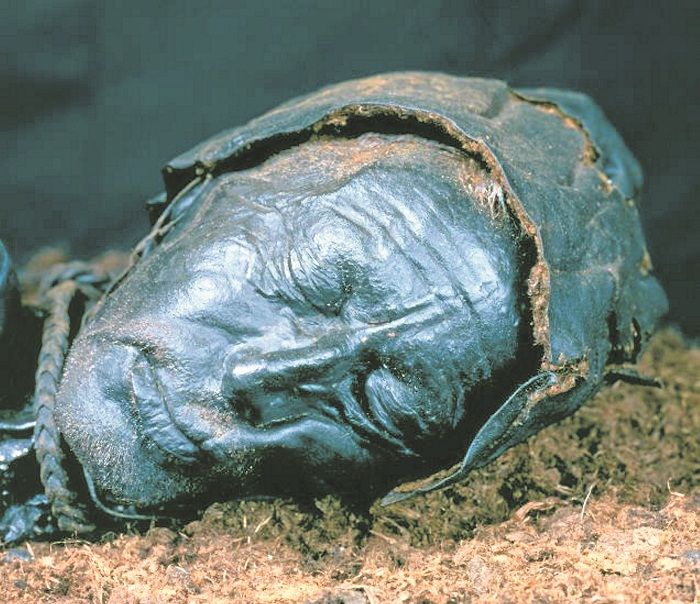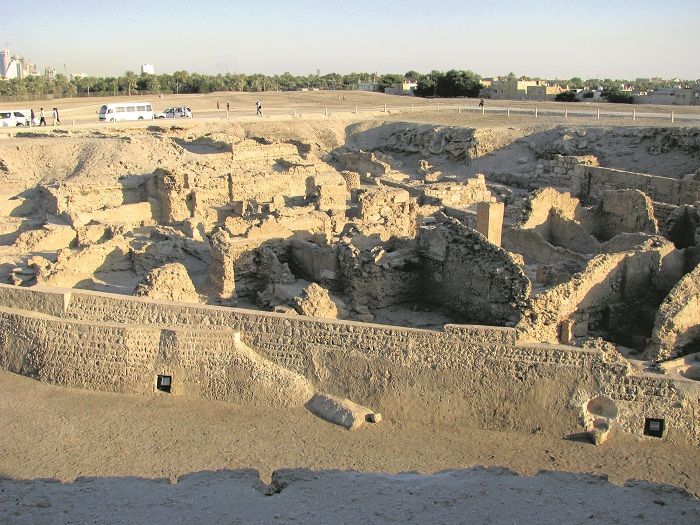The word ‘bahrain’ means ‘two seas’ in Arabic, making the island country of Bahrain the ‘kingdom of the two seas’ – a description that could equally be applied to Denmark. But the similarities don’t end there. Many Danes watching the mounting tensions in Bahrain over the couple of months will be unaware of the country’s long-standing connection to Denmark due to the work of an archaeologist named Peter Vilhelm Glob.
In the 1950s, he discovered and excavated the ruins of the ancient Dilmun civilization in the tiny island country, which established a distinct cultural history for the people of Bahrain. The ancient land of Dilmun was part of a Mesopotamian trade route in the 2nd century BC and written about by the Sumerians on clay tablets. The land’s description as a kind of paradise, full of wealth and fertile plants, has led to some historians concluding that it was the location of the Garden of Eden. Before the digs Glob led in the 1950s, it was assumed that Bahrain was simply a burial ground for other ancient civilizations from present-day Saudi Arabia. So Glob’s discovery that he was digging up a completely unique civilization on these islands changed the history of Bahrain.
Bog people discovery
Glob is most famous for his work on the bog people discovered in the peat bogs in Jutland in the 1950s. Initially the locals who discovered them thought they were recent murder victims, but Glob quickly ascertained that they had actually been naturally mummified and dated from the 4th century BC. Glob researched the background of these Iron and Bronze Age people, publishing several anthropological studies on the history of the Stone Age and the Vikings in Denmark. During his career he led excavations of one of the oldest Neolithic sites, discovered on the peninsula of Djursland in Jutland, and was the director of the National Museum in Copenhagen. In 1949 he accepted a position in Århus as the new chairman of prehistoric archaeology at Aarhus University. He moved to Jutland and also headed the Prehistoric Museum, originally a part of the university.
The kingdom of Bahrain is made up of a group of islands off the coast of Saudi Arabia. It is even smaller than Denmark, with a population of little over 1.2 million in 2010. Bahrain is also the name of its largest island, which is shaped like a foot curving into a point and connected to Saudi Arabia by the King Fahd Causeway. The country is well-known for petroleum and pearls, which make up their major exports, along with banking and financial services.
In the 1950s, it became internationally known that Bahrain had many burial mounds, around 100,000 of them, spread across the island’s 665 square kilometres. Many of the mounds are only 1.5 metres high, but the largest are structures of local stone and coral rising up to 12 metres above the sand. The incredible number of these ancient sites had led archaeologists to assume Bahrain was only a burial ground for neighbouring cultures around the Gulf. Glob wanted to investigate further.
In 1954, he and his team found the strongest proof of a connection between Bahrain and the Dilmun civilisation: the Barbar Temple. Three limestone temples were uncovered, each built on top of each other, dating back to 2500 BC. Underneath the structures were a water spring and the remains of an ancient basin, believed to have been used in the temple to wash worshippers. The location indicates a connection to the Mesopotamian gods of creation: Enki, the god of wisdom and freshwater, and his wife, Ninhursag. In ancient Sumerian cuneiform writing, Dilmun is described as the land where Creation occurred and “the land where the sun rises”. Trade documents from Mesopotamia list Dilmun as a stop-off on one of the major routes to the Indus Valley, the location of an important Bronze Age civilization in present-day Pakistan.
Global legacy
Other major finds included the ancient cities of Qalat al-Bahrain and Sar, where the remains of well-organised settlements and buildings were uncovered. Glob and his team found trading artefacts, including cylinder and stamp seals, which pointed to trade between Mesopotamia and the Indus Valley in the early 3rd and 2nd millennia BC. The buildings in Sar are made of limestone in a repeating L-shape, and a cemetery formed in a honeycomb pattern is located next to the village.
Glob continued as the head of the Prehistoric Museum in Århus until 1962, and although it has since been relocated and renamed as the Moesgaard Museum, its collection today still includes a selection of artefacts from Bahrain and other locations around the Persian Gulf. And the Bahrain National Museum – which was actually designed by a Danish firm, KHR Arkitekter, in 1987 and is the largest in the country – has a collection of artefacts from the Dilmun civilisation, including an actual burial mound transported from the desert and recreated inside the museum.
So Glob’s legacy truly stretches across the globe.
















